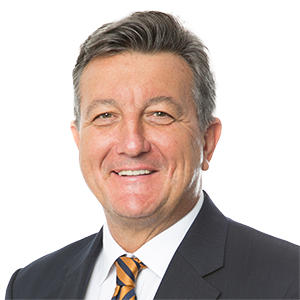The New Development Bank (NDB), the multilateral development bank established by Brazil, Russia, India, China & South Africa (BRICS) to finance infrastructure and sustainable development projects, hosted a very interesting side event at COP28 on Day 6.
The NDB side event theme focused on Just Transition outcomes and indicators: Are we on the right path? Panel participants included Dr Crispian Olver, Executive Director of the Presidential Climate Commission; Eskom Acting CEO Calib Cassim, Gareth Phillips, AfDB Chief Climate Change and Green Officer in the Environment and Climate Change Division and Vincent Gilles, CFO of Infinity.
“Unchartered territory”
Dr Crispian Olver acknowledged that we are an unchartered territory when it comes to measuring and tracking a ‘just transition’ and highlighted the importance of exchanges such as those taking place at COP28 this week to track and measure what a ‘just energy transition’ looks like.
Olver emphasised that in terms of African nations their ambitions for growth needed to be addressed through the lens of their own national developmental needs and that climate justice for the developing world needs to take place hand-in-hand with the ambitions of these nations.
Climate justice framework
As the Executive Director of the Presidential Climate Commission, Olver and his colleagues have created a framework for three types of climate justice that need to be considered, namely Procedural Justice, Distributive Justice and Restorative Justice. These need to be integrated into every just transition energy plan and be measured and tracked to assess their actual impacts in communities that are dealing with climate events.
- Procedural justice is about making sure that those who are most vulnerable in the developed world – those facing inequality, poverty and employment - are able to take part in the decisions on how the projects are done and have ownership of the projects. Olver said these communities sometimes feel that the global elite are making decisions on their behalf, but they aren’t part of these decisions. Energy transition decisions and new energy projects need to factor in the views and participation of communities most affected by these decisions.
- Distributive justice is about ensuring that the project risks and opportunities are equitably shared. To be specific, are we creating jobs to offset the very substantial job losses that are coming with the decommissioning of coal-fired power stations? There are central economic shifts taking place that will have enormous impacts on developing world economies.
- Restorative justice is about how we take the land, the airsheds and watersheds back to the way they were before they were impacted by climate change events and also restore communities to more resilient forms of living. How do we make sure communities are resilient to climate events?
Vincent Gilles stated that tracking is becoming increasingly important and that it adds credibility and integrity. He further submitted that a reputation of a company takes ages to build, but it takes one minute to destroy it – that’s why companies need to be laser focused on tracking.
The challenges
Eskom Acting CEO Calib Cassim spoke about the challenge of decommissioning coal power plants where ecosystems exist that support the livelihood of many communities. He made it clear that it is not possible to decommission all SA’s power plants from Eskom’s perspective (80% of South Africa’s power is procured from coal powered stations). A priority for Eskom is considering whether power stations can be repurposed to support the ecosystems that currently reside around power stations. It is imperative that the current drive for an energy transition doesn’t exacerbate the challenges of inequality and poverty for communities. From an electricity industry perspective, it’s an exciting time of challenges and opportunities for the industrialisation of the renewable sector in SA.
Gareth Phillips from the AfDB reminded the audience about educating communities on climate change as a key part of consultation processes. Stakeholder consultations should ideally take place before engineers come in, to design project solutions.
Financing the transition
The global concessionary finance on offer to South Africa is completely mismatched to the need, Dr Crispian Olver stated. If the JET IP is to be fit for purpose, there’s a fundamental rethink needed on how to structure the financing. There is $1.5 trillion funding requirement for SA’s JET IP by 2030. At the moment, we get 2.5% of global trade, but 30% of that trade is negatively impacted by Carbon Border Adjustment Mechanism (CBAM). Africa is being hobbled from its core ambition of being prosperous because the overall financial architecture discriminates against developing nations playing in this space. Africa only gets 3% of climate finance but is disproportionately impacted by climate change.
The AfDB is working to increase Africa’s portion of climate financing portion to 10% by 2030.
Phillips was positive that there is movement in the right direction and that it should get easier to raise green financing. The AfDB also has a green banks initiative that is growing.
Calib Cassim concluded with noting the $8.5 billion finance from the IPG has grown to over $11bn to contribute to South Africa’s just energy transition. As a country we need to see the integrated energy system talking to the integrated funding system. We need a Masterplan with each of the sectors across generation, distribution and transmission talking to each other as well as rail and logistics. We need everyone on board to put the big puzzle together, Cassim noted.
DrvOlver concluded that as these exchanges are occurring, the magnitude of the challenge is dawning on all those involved. However, there is progress. Prices related to renewable energy projects have come down and it’s now cheaper to do a renewable energy system than any other type of project. So, what we need to unlock this transition at scale are the enabling regulatory reforms. South Africa is making headway in introducing regulatory reforms. The transition is underway but it’s our obligation is to ensure it’s a just one.





